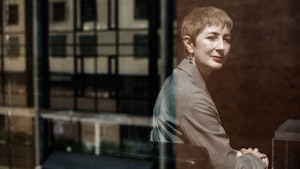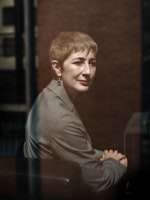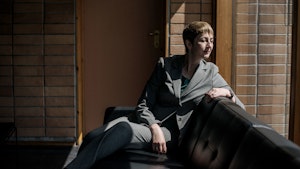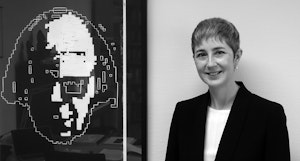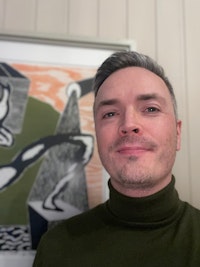Darla Crispin has been involved in artistic research since the discipline first emerged around 20 years ago. By that time she had already gained her concert recital diploma as a pianist from the Guildhall School of Music & Drama in London. She continued studying musicology at King’s College London, where she completed a master's degree and a PhD.
Obsessed with Schoenberg
The composer Arnold Schoenberg must be given much of the credit for her extensive studies. Her diploma recital included music from the First and Second Viennese Schools – Mozart, Beethoven, Haydn and Schoenberg, Berg, Webern. She wrote her doctoral thesis on Arnold Schoenberg’s string quartets. More than anything else, it was his music that shaped her as a musician and academic, she says.
“I think it’s true to say I was, and still am, quite obsessed with Schoenberg’s music. It’s philosophical and difficult music in more ways than one. I’ve performed it and reflected on it to try to understand what it means – both to the listener and to society. It has probably also shaped me as a person; as someone who tries to help others ask their questions.”
The Arne Nordheim centre
The composer Arne Nordheim died in 2010, and in 2012 a centre was established at the Norwegian Academy of Music to uphold his legacy. When Darla Crispin was appointed head of the centre in September 2015, the centre was given a new and broader mandate. As well as researching the music and legacy of Nordheim, the centre is also tasked with being a driver and communicator of artistic research at the highest level. Even the name hints at its international ambitions: the Arne Nordheim Centre for Artistic Research (NordART).
A young discipline
Artistic research has been a statutory obligation for higher arts education providers in Norway since 1995. The Universities and University Colleges Act states that the discipline should be an artistic parallel to scientific research. The government's Artistic Research Programme covers all creative and performing arts at university level. In spite of this, the concept of artistic research is still a relatively unfamiliar phenomenon to the wider public. Darla Crispin is enthusiastic about the particular characteristics of the discipline.
“There are many ways of being a musician. Some are satisfied with concentrating on their instrument and not reflecting beyond that. Others find it natural to reflect on their performance and analyse their work. In combination, it becomes a reflective practice. If we move to the next level, this reflective practice can be shared with others. It becomes a discussion between musicians about their art and the social aspects of what they do. Artistic research combines all of this: internal, experience-based knowledge and knowledge obtained externally. Strict methodologies turn this process into science, but with its own language. Artistic research combines the ability to produce fresh research with artistic practice at the highest possible level.”
The aim of the discipline should therefore be to give value to artistic practice and experience to make it relevant as research material. Combined with reflection and artistic performance, it can result in innovative outcomes, according to Darla Crispin.
“Artistic performance improves due to the reflection process the performer goes through, and the two aspects combine to create art that is new, unusual and means something to the world today.”
What is the difference between artistic research in music and what we could call traditional musicology?
“The challenge of artistic research is to ask questions from within artistic practice, while in a traditional scientific perspective the questions are posed from the outside, practices are examined and observations made. The aspect of observation permits conclusions to be drawn that contain a degree of objectivity. Personally, I don’t think it’s possible to be completely objective, but that critical distance is important when it comes to science. It ensures that we can draw healthy conclusions. Artistic research, on the other hand, relies on the personal experience of artistic practice. Artistic research will therefore always face challenges when it comes to methodology, because if each project is based on personal practice, it is not possible to apply one single methodology. Part of the process is therefore about constructing methods that are compatible with the project in question.”
